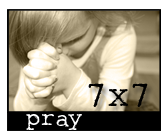Student Teachers
Brandon Renfroe
After teaching in public schools for a few years, you learn things. Not everything, mind you. Certainly not the inner workings of the adolescent mind (as if that mystery could be fully plumbed). But small things. Quirky things.
I know, for example, that the paper towels in the boys’ bathroom will be long gone by noon, and will not be replaced for the rest of the day. But I also know that an unused towel or two will often fall, unnoticed, into the top of a (mostly) unused wastebasket, thereby making itself available to the restroom-savvy (and brave) individual. Too, though generally not very good with my hands, I know more about the inner-workings of large copiers than one might expect, and can clean out a copier jam with a cool precision approaching ferocity.
The beginning of a new school year is always a bit unnerving. No matter how comfortable a teacher is in the classroom, regardless of how well-prepared an instructor may be, there will always be “hiccups” the first few days. Those who prefer an orderly environment await the upheaval as new students arrive, schedules change constantly, and chaos is the order of the day.
Every year presents its own unique challenges. As everyone knows, communicating with teenagers can be difficult on good days—and that is when we speak the same language. But when new students arrive from foreign countries, the language barrier becomes much more pronounced. Upon informing a young woman fresh from Germany that she would need a calculator for class, she responded: “What’s a ‘calculator’?” (As I later learned, what I should have said was der taschenrechner.)
With over one hundred and fifty youngsters under my charge (169, but who’s counting?), I often give my students a brief “information sheet” to fill out on the first day of school. Basic information is solicited: parent names, contact numbers, and other pertinent data. On the back of this paper, I ask the kids to tell me something about themselves. Though I do not pry, I encourage them to inform me of anything they might want me to know but would be uncomfortable sharing in front of their peers. (For, be it remembered, of all God’s creatures, none is more image-conscious than the teenager).
What I have learned from these papers over the years has been an education within itself. Most students happily comply with my request, eager to inform me of what makes them unique. One young man is an aspiring musician, even having (unless he is pulling my leg) an in-home recording studio. Another describes himself as a “gear-head,” with a passion for working on old automobiles. I enjoy learning these tidbits about my students, as it helps me become better acquainted with their interests.
Not all, however, are compliant. Rarely, a student will simply refuse to participate, sharing nothing except for the basic contact information. Of course I realize that some students are shy, or are otherwise hesitant to divulge personal information. (For, be it remembered, of all God’s creatures, none can be more standoffish than the teenager.) Still, it is usually the case that a student refusing to share lighthearted trivia is revealing more about themselves than perhaps they intend. Though it is unfair to stereotype, these students will typically be the ones who have an “attitude.” Wise teachers do not write these students off; rather, they know it will take a concerted effort to break through the student-imposed barriers.
On the other hand, I could wish that some students were not quite as forthcoming. To my dismay, one young woman recently listed her favorite hobby as “smoking.” Whether she thought her response would pass unnoticed is debatable; still, it was something I could not let go unmentioned. Calling her to my desk on a later occasion, I asked: “Why did you write this?” “Because I like to smoke,” she said. “But it’s not good for you to smoke,” I countered, before adding: “But even so, do you think that was a good thing to share with your teacher?” She was unmoved. “I just tell the truth.” “Well,” I said, “it is good to tell the truth—but you don’t have to tell everything you know!” The jury, I am afraid to say, it still out on this one.
Unusual responses aside, what I have learned from these information sheets has been eye-opening, and even moving, on more than one occasion. One sweet young woman suffers from Hodgkin’s disease. Though she will be absent for treatment on occasion, she still plans on participating in all the class activities she possibly can. Her determination is an example for all of us; how frail and pitiful our excuses seem in comparison!
Many students have experienced tremendous loss, even at a tender age. One informs me that she lost both parents in one fateful month, two years ago. Though she doubtless mourns, I have yet to see her without a positive attitude, and a smile that instantly brightens the room. More than one child speaks of having anxiety for loved ones serving in the military, all the while assuring me that a distant look is not intended as disrespect. Over and over again I am reminded: We rarely know the burdens others are called to bear.
If there is another recurring refrain that emerges, it is this: the absolutely critical role parents play in the lives of their children. Perhaps most alarming is that of all my students, a grand total of one praised his home life: “I have awesome parents,” a young man boasted. He is the happy exception: the vast majority of students confess their bitter disappointment in absentee parents. “My father is not the kind of dad he should be,” one writes. “I rarely see my mother,” another laments. While some teenage angst (or exaggeration) is to be expected, there is no denying that many homes in our nation lie in shambles.
The impact of this domestic destruction is readily seen in our schools—and in our congregations. To say nothing of the physical and emotional turmoil it generates, many teachers have seen firsthand the practical problems it produces: a lack of discipline in the classroom. The first reaction of most teachers to defiance is predictable, and understandable: we take it personally. “How dare you defy my authority,” we inwardly think—if not forthrightly say.
The truth is, in many modern homes the teenager is the authority. I do not make reference to unfortunate “modern” households in which the “tail” (i.e., the kids) wags the “dog” (i.e., the parents)—though this problem is an increasingly common one. Rather, I am speaking of those children who are, for all intents and purposes, de facto parents to younger siblings. Many kids leave school at the end of the day and go directly to a job—not for extra spending money, but to provide the necessities of life for their dependant families. It can be difficult for these grown-before-their-time adolescents to shift seamlessly from being the “authority” at home to a “subordinate” in the classroom. Though the rules still apply, experienced teachers understand that extenuating circumstances often color situations that otherwise seem clear-cut.
No one who is introspective can fail to learn much about himself (or herself) from daily interaction with students—and much of it is humbling. While most church members see their local preacher only a few times per week, and rarely in unguarded moments, students see their teachers every day—for better or worse. To be certain, any notions of perfection are quickly disabused in the classroom. As the inspired writer could have told any prospective teacher: “You have need of patience” (Hebrews 10:36).
Thus, while it may seem that our youngsters are often “tuned out” or are otherwise unobservant, do not be fooled: those little eyes are watching, and making careful note of what they see—and do not see. Thoughtful parents and teachers everywhere, take note: the future of our homes, our nation, and—in a very real sense—the church of tomorrow, is at stake.
Monday, August 23, 2010
Student Teachers
This article was written by a friend of mine. I think he speaks the truth about teaching and our students in a way that I can't. I hope you enjoy reading it as much as I did.
Subscribe to:
Post Comments (Atom)






2 comments:
This is great! Very well said!
I don't like it. This guy probably doesn't even teach.
Post a Comment